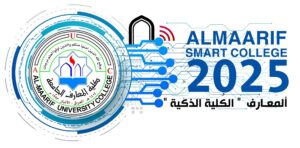Al-Ramadi Smart City: Fostering Collaborative Innovation for Sustainable Urban Developmen
Introduction:
Al-Ramadi Smart City, conceptualized by Al-Maarif University College in Iraq’s Anbar Province, represents a pioneering effort to blend technology and environmental sustainability. This visionary initiative encompasses three core directions: Smart Agriculture, Smart Utilities, and Smart Environment. By launching projects within each domain, the vision seeks to address urban challenges and raise awareness about the transformative potential of tech-environmental solutions. Integral to this endeavor is the inclusion of innovative ideas and existing technologies, exemplified through sub-projects like Remote Irrigation, Smart Lights, and Smart Garbage Collecting. Furthermore, the project was bolstered by the International Conference of Emerging Technology in Internet of Things and Computing, which served as a catalyst for collaboration and innovation. Notably, the vision remains open for research contributions and local ideas, encouraging a collaborative approach to sustainable urban development. The project’s activities and updates are accessible through its website: [Al-Ramadi Smart City Website](https://smartcity.uoa.edu.iq/), which welcomes all forms of collaboration and serves as a platform for supporting the local community with tech-environmental production. Additionally, the website serves as an educational resource for local communities and facilitates continuous engagement with local authorities to enhance the region’s way of living.
Smart Agriculture:
One of the pillars of Al-Ramadi Smart City is Smart Agriculture, which redefines farming practices through innovation and technology. Among the projects launched within this domain is Remote Irrigation, an initiative aimed at promoting local and personal food production. By employing a simple setup comprising Arduino cards, humidity sensors, smart switches, and water pumps, Remote Irrigation facilitates almost zero-effort farming methods. This approach capitalizes on the importance of small-scale farming and encourages individuals, regardless of their primary occupation, to engage in agriculture.
Smart Utilities:
In the realm of Smart Utilities, the focus is on optimizing resource management and reducing costs. The Smart Lights project is a prime example, leveraging smart motion sensors to regulate street lighting based on traffic patterns. By connecting the sensor network to the main grid, the project effectively lowers electricity consumption during periods of low activity. This innovative approach not only saves energy but also contributes to cost savings and environmental conservation.
Smart Environment:
Al-Ramadi Smart City prioritizes environmental sustainability through initiatives like Smart Garbage Collecting. This project introduces smart bins equipped with sensors that monitor waste levels in real-time. When a bin reaches capacity, the assigned contractor is notified via a mobile app, streamlining waste collection processes and ensuring timely disposal. By promoting efficient waste management practices, Smart Garbage Collecting contributes to a cleaner and healthier urban environment.
Conclusion:
Al-Ramadi Smart City stands as a testament to the transformative power of technology and environmental stewardship. Through projects in Smart Agriculture, Smart Utilities, and Smart Environment, the vision not only addresses urban challenges but also fosters a culture of innovation and sustainability. By incorporating innovative ideas and existing technologies like Remote Irrigation, Smart Lights, and Smart Garbage Collecting, the project sets a precedent for sustainable urban development. Moreover, the inclusion of the International Conference of Emerging Technology in Internet of Things and Computing underscores the collaborative spirit driving this visionary initiative forward. As Al-Ramadi Smart City continues to evolve, it serves as a beacon of hope and inspiration for communities seeking to build a more sustainable future, inviting research contributions and local ideas to further enrich its endeavors. The project’s website serves as a hub for collaboration, education, and community support, reflecting its commitment to enhancing the region’s way of living.

